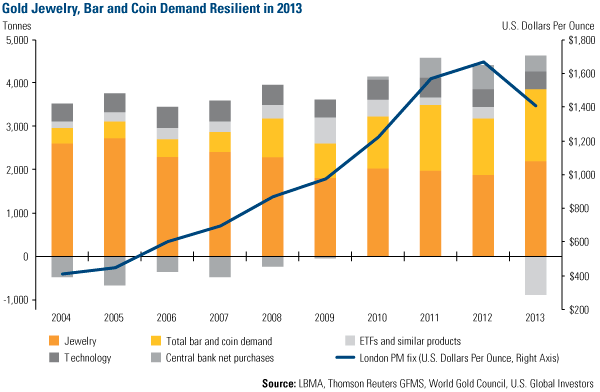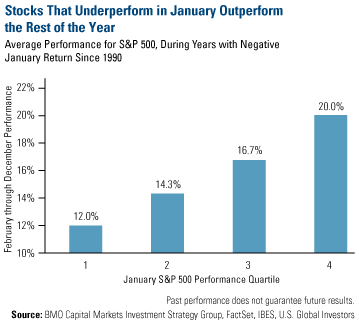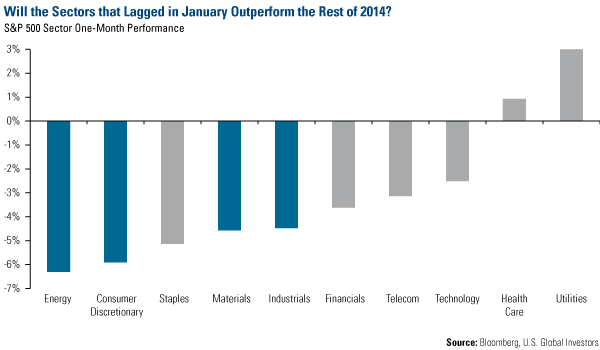Going for the Gold
By Frank Holmes, CEO and Chief Investment Officer, U.S. Global Investors
February 21, 2014
Everyone wants the gold. Around the world, athletes train for years to compete for a gold medal. In Hong Kong and China, the Love Trade seeks gold coins, bars and jewelry.
 |
We found out this week the extent that gold is sought in the East. For the first time since 1980, Switzerland released monthly gold trade data, providing a more transparent picture of physical gold flows.
In January alone, the Swiss report showed an incredible 80 percent of gold shipments went to Asia.
Switzerland plays a key role in the gold market because it is home to many big gold refiners, so its report confirms what we’ve been saying about gold’s move out of the West to the strong hands of the East.
So even though the gold price fell in 2013, the smart money tuned into this flow of physical gold that was moving into the East. Meanwhile, naysayers were distracted by the Fear Trade’s selling out of gold ETFs.
“Gold flooding onto the market as a result [of large-scale ETF selling] was used to feed the voracious appetite for physical metal among consumers in India, China and numerous Asian and Middle Eastern markets,” says the World Gold Council in its latest report. You can see in the chart that gold demand reached record levels in the jewelry, bar and coin areas of the market last year. In fact, there was a 21 percent increase in demand from consumers, which was in contrast to the outflows from gold ETFs, per the WGC.
Along with this continued demand in January, Daniela Cambone from Kitco and I discussed the factors that could drive gold to $1,400 an ounce. Find out what those are now.
Opportunities Found by Rejecting an Old Investing Adage?
Following a great 2013, many U.S. stocks (an exception being gold stock indices) likely disappointed investors in January. For those who follow the investing adage, “as January goes, so goes the year,” the stock market may not be looking so bright for the rest of 2014.
But research suggests there are opportunities to be found.
“Negative Januarys do have interesting implications” for U.S. stocks, says Brian Belski of BMO Capital Markets. He recently dissected monthly S&P 500 performance, taking a look at the years when the market declines in January.
I think you’ll be surprised at his results.
Going back 24 years, the stocks that performed the best in January significantly lagged for the rest of the year compared to the stocks that did the worst. See the results below, which show that the companies in the bottom quartile for January performance rose a significant 20 percent from February through December. The stocks that did the best in January rose only an average of 12 percent during the rest of the calendar year.
Belski’s analysis aligns with the recent poor performance in sectors that we previously identified as having strength over the past several months. Of the 10 sectors in the S&P 500, our models have identified consumer discretionary, health care and industrials sectors as having sustained leadership.
But in January, industrials and discretionary stocks were among the worst-performing sectors. Energy and materials were also in the bottom half.
While past performance does not predict future results, BMO’s research suggests stocks in the lagging sectors could outperform for the rest of 2014. We are especially bullish on those dividend-paying companies experiencing robust fundamentals, including strong revenue and earnings growth.
















